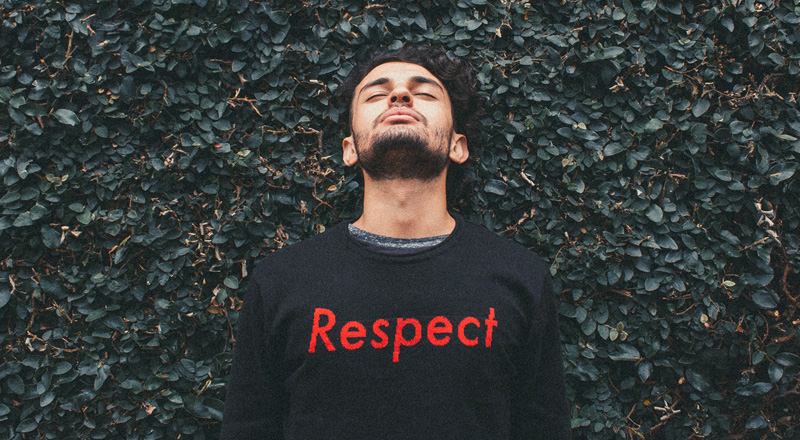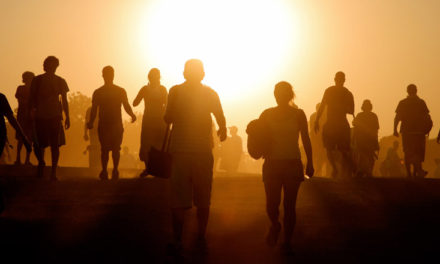Defending Dignity
Tena tātou katoa e te iwi mīhana… (Greetings to all the people in mission),
This month’s whakataukī (proverb) is: “Kaua e takahia te mana (o te tangata)” [Don’t trample the mana (of the people)]. The nurturing of mana undergirds kaupapa and tikanga Māori (the Māori way of thinking and acting). Mana is a complex part of Māori identity and our way of understanding and interacting with the world. It has deeply spiritual roots and is valued more than material wealth. To think of mana as a system of honour does it an injustice. Mana is the core of one’s being, to be fiercely defended. It is sacred. It is key to understanding the Biblical narrative. While not known as mana, the principles are there in Scripture, foundational to all relationships portrayed in the Biblical account.
the national expression of solidarity… an immediate attempt to rebalance the loss of mana.
In Christchurch, New Zealand on March 15, 2019 the mana of a people was trampled. That kaupapa Māori has influenced the value systems of our nation was never more apparent than in the way (most of) the nation responded to the attack on the mana of Muslim people who reside here. Through my lens I saw an immediate response of what Māori call “manaaki”—literally, “to elevate the mana of another”. On reflection, I now view the national expression of solidarity as an immediate attempt to rebalance the loss of mana—to defend the dignity of those whose honour had been diminished. Granted, this is an interpretation, but no less valid than any other.
We made space for the voice of Islam to be heard in our land in an unprecedented way. It was a sympathetic response of respect for their loss, a loss keenly felt by us all. We have not experienced anything like this before. With shame, I thought back to my reaction to US American friends who felt so passionately about 9/11. I thought they were overstating things a bit. Oh how experience breeds empathy!
I was experiencing a phenomenon I described… as the “proximity effect”.
As news of the Christchurch attack unfolded, my social media was awash with commentary. I have a broad set of friends and follow diverse commentators so I was exposed to some fairly extreme opinion in the two weeks following the event, then it dropped off. I became distressed when posts and comments responded to coverage of the Christchurch event with “what about Nigeria”, “what about the persecution of Christians”, “what about floods in Papua, or Mozambique”, “will Ardern stand up for China’s Uyghurs as she has for NZ Muslims?” I was pained by how glibly some respected international colleagues dismissed the attack, citing worse atrocities in the world. I eventually realised that I was experiencing a phenomenon I described in a Facebook post as the “proximity effect”. In audio engineering it is experienced as bass resonance. The closer a mic is to the source of the sound, the more bass is produced.
I was so relatively close to the Christchurch event that it had deep emotional resonance for me in a way that the historical suffering or current crises in Nigeria, Mozambique, Papua and China did not. They are no less important, but they were, in the moment, less relevant for me. Perhaps I was naive to expect outsider empathy. Perhaps I was given a taste of my own medicine! Nevertheless, my anguish was real. The values of my nation were in turmoil and my personal values, informed by my Christian beliefs, were being challenged by our society’s response.
What we have had to face as a nation and the people of God in this nation is a rude awakening to pluralism. We have not had to contend with cultural and religious diversity to this degree before and Christians were somewhat polarised in their reactions. Fear is never an appropriate response, but neither is apathy. I saw significant spiritual implications for our nation in the Government sanctioned broadcast of Muslim Friday prayers, where others saw it as a benign act of empathy. I have since come to appreciate that we are probably more spiritually harmed by the morality of regularly broadcast ‘entertainment’ than televising Muslim New Zealanders at prayer. That’s not to say we should idly accept such influences. Our most potent response, however, is prayer not protest. In a plural world, Christians cannot expect to have their religious views as the only ones socially accepted or broadcast on national radio and television.
Evangelicals must get a better handle on what it means to nurture the mana of others.
Evangelicals must get a better handle on what it means to nurture the mana of others. In light of 15/03/19, I was prompted afresh to orient my life around two interacting spheres: social and spiritual. In the social sphere I relate, converse, respect, honour, appreciate, embrace, work for the common good, fight injustices, and live generously and harmoniously with all people, never diminishing their dignity. In the spiritual sphere I stay true to my beliefs, nurture the Source of my social goodness, worship a triune God in the beauty of holiness because of Christ, rest in the knowledge of my salvation, and live in perfect peace. When opportunities arise, I will speak of the Source of the character of Christ evident in my life, proclaim the mana of God as I intimately experience it—an intimacy that I believe sets Christians apart from adherents of all other religions—and share the hope of life everlasting (see 1 Peter 3:15).
The age of Colonialism was an age of imposition. We live in the age of pluralities, an age of tolerance, where imposition is no longer accepted and rightly so. We must adapt. Far better that our love for one another, extended to others, be so real and obvious that it is an attraction to our faith. That is why it is so important we “make every effort to keep ourselves united in the Spirit, binding ourselves together with peace” (Ephesians 4:3). “So that the world will know” (John 17:23). Defending the dignity of all is how we #stayonmission.
Whakapaingia te Atua, to tatou kaiunga ki te ao whanui (Praise to God, who sends us into the world),
Jay






